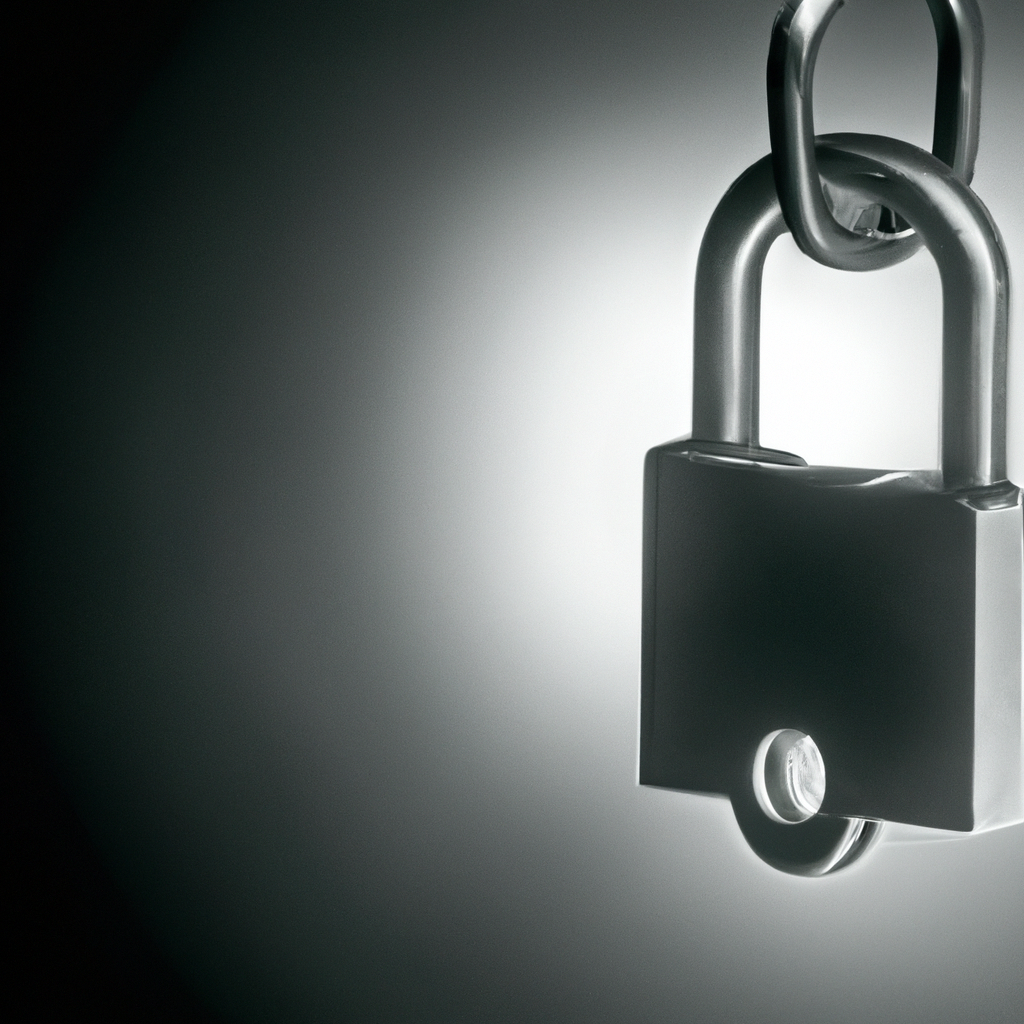You know that keeping your precious data secure is of utmost importance in today’s digital age. With cyber threats constantly evolving and becoming more sophisticated, traditional encryption methods may no longer be enough to protect your sensitive information. That’s where quantum cryptography comes in. This groundbreaking technology uses the principles of quantum mechanics to provide a level of security that is virtually unbreakable. By harnessing the unique properties of quantum particles, such as entanglement and superposition, quantum cryptography ensures that your data remains safe and secure from prying eyes. In this article, we will explore the role of quantum cryptography and its potential to revolutionize data security.
Understanding Quantum Cryptography
Definition of Quantum Cryptography
quantum cryptography, also known as quantum key distribution (QKD), is a cutting-edge technology that leverages the principles of quantum mechanics to provide secure communication channels. Unlike classical cryptography that relies on mathematical algorithms, quantum cryptography utilizes the properties of quantum particles to establish unbreakable encryption keys. By exploiting the fundamental principles of quantum mechanics, such as superposition and entanglement, quantum cryptography ensures the confidentiality and integrity of sensitive information.
Fundamental Principles of Quantum Cryptography
There are three fundamental principles that underpin quantum cryptography: quantum mechanics, quantum key distribution (QKD), and quantum entanglement.
Quantum mechanics is the branch of physics that describes the behavior of matter and energy at the quantum level. It is characterized by the principles of superposition, where quantum particles can exist in multiple states simultaneously, and measurement, where the act of observing a quantum particle forces it to collapse into a single state.
Quantum key distribution (QKD) is the core principle of quantum cryptography. It involves the exchange of quantum particles, such as photons, between two parties: the sender and the receiver. Through a process called quantum channel establishment, these particles are used to generate a shared secret key that can only be accessed by the sender and receiver. The security of this key is based on the principles of quantum mechanics, making it immune to hacking attempts.
Quantum entanglement is a phenomenon in which two or more quantum particles become correlated in such a way that the state of one particle is dependent on the state of the others, regardless of the distance between them. This property allows for the creation of highly secure encryption keys in quantum cryptography. Any attempt to intercept or measure the entangled particles would disrupt their delicate quantum states, alerting the communicating parties to the presence of an eavesdropper.
History and Evolution of Quantum Cryptography
Early Development and Pioneers
The roots of quantum cryptography can be traced back to the early 1970s when researchers first started exploring the potential of using quantum properties for secure communication. Notable pioneers in the field include Stephen Wiesner, who proposed the concept of quantum money, and Bennett and Brassard, who introduced the concept of quantum key distribution.
Quantum Cryptography in the 20th Century
Throughout the 20th century, significant advancements were made in the field of quantum cryptography. In 1984, Bennett and Brassard developed the first quantum key distribution protocol, known as BB84. This protocol allowed for the secure exchange of encryption keys using quantum properties and became the foundation for future developments in quantum cryptography.
Modern Advances in Quantum Cryptography
In recent years, there have been remarkable advancements in quantum cryptography. Researchers have successfully implemented practical quantum key distribution systems that can operate over long distances, making quantum cryptography a viable solution for secure communication in various domains. Additionally, quantum-resistant encryption algorithms are being developed to withstand the potential threat posed by quantum computers.

The Science Behind Quantum Cryptography
Quantum Mechanics and Cryptography
Quantum mechanics plays a crucial role in quantum cryptography. It allows for the generation, distribution, and utilization of encryption keys with unparalleled security. The principles of quantum mechanics, such as superposition and measurement, form the foundation for quantum key distribution and other quantum cryptographic protocols.
Quantum Key Distribution (QKD)
Quantum key distribution (QKD) is the process by which two parties securely exchange encryption keys using the principles of quantum mechanics. In QKD, the sender prepares a set of quantum particles and sends them to the receiver. By measuring these particles, the receiver can extract a secret key that is completely random and unknown to any potential eavesdroppers. QKD ensures that any attempt to intercept the quantum particles will disrupt their delicate quantum states, alerting the communicating parties to the presence of an eavesdropper.
Quantum Entanglement and Superposition
Quantum entanglement and superposition are two fundamental properties of quantum mechanics that are harnessed in quantum cryptography. Entanglement allows for the creation of correlated pairs of quantum particles, such as photons, where the state of one particle is instantaneously related to the state of the other, regardless of the distance between them. This property enables the secure distribution of encryption keys, as any attempt to intercept or measure the entangled particles would disturb their entangled states.
Superposition, on the other hand, allows quantum particles to exist in multiple states simultaneously. This property is utilized in quantum key distribution protocols to ensure that the encryption keys generated are random and unpredictable. By measuring the superposed particles, the receiver can obtain a random bit string, which forms the basis of the encryption key.
The Application of Quantum Cryptography
Quantum Cryptography in Information Security
Quantum cryptography has a significant impact on information security. By providing unbreakable encryption keys, quantum cryptography can protect sensitive data from unauthorized access and ensure the integrity and authenticity of information. It is particularly useful in securing communication channels for online transactions, online banking, critical infrastructure, and other applications that require high levels of security.
Commercial Use of Quantum Cryptography
While still in its early stages, quantum cryptography has attracted interest from various industries. Companies involved in secure communication, financial services, and military applications are investing in research and development to explore the potential of quantum cryptography for commercial use. Quantum key distribution systems are being developed and implemented to protect sensitive data in corporate networks, government agencies, and other organizations that handle classified information.
Quantum Cryptography in Military and Government
The military and government sectors have recognized the potential of quantum cryptography for secure communication. Quantum key distribution can ensure the confidentiality of classified information, protect against cyber-attacks, and safeguard critical infrastructure. Governments around the world are investing in research and development to build quantum communication networks and leverage quantum-enhanced encryption for national security purposes.

Advantages of Quantum Cryptography
Enhanced Data Security
One of the primary advantages of quantum cryptography is enhanced data security. Quantum key distribution provides encryption keys that are theoretically unbreakable using existing computational power. This ensures that even with advances in technology, the encrypted data remains secure against unauthorized access.
Prevention of Eavesdropping
Quantum cryptography provides a solution to the problem of eavesdropping in traditional cryptographic systems. The principles of quantum mechanics make it impossible for an eavesdropper to intercept or measure quantum particles without being detected. Any attempt to tamper with the quantum states of the particles would disrupt their delicate nature, alerting the communicating parties to the presence of an intruder.
Long-term Data Security
Another advantage of quantum cryptography is its long-term data security. With the rise of quantum computers, traditional encryption algorithms are at risk of being broken. Quantum cryptography provides a future-proof solution by leveraging quantum properties that are resistant to classical computational attacks. This ensures the longevity and integrity of encrypted data, even in the face of technological advancements.
Challenges and Limitations of Quantum Cryptography
Technical Limitations
While quantum cryptography holds great promise, there are several technical limitations that need to be addressed. One of the challenges is the need for expensive and delicate hardware to implement quantum key distribution systems. Additionally, the transmission distance of quantum particles is limited by factors such as loss and noise, necessitating the development of efficient repeaters and amplifiers.
Implementation Challenges
Implementing quantum cryptography on a large scale poses numerous challenges. Integrating quantum cryptographic systems into existing networks and infrastructure requires careful planning and coordination. Furthermore, ensuring the interoperability and compatibility of different quantum cryptographic protocols and technologies is crucial for widespread adoption.
Legal and Regulatory Concerns
Quantum cryptography also raises legal and regulatory concerns. The use of quantum key distribution may require compliance with international standards and regulations to ensure the secure and lawful exchange of information. Additionally, policies and laws regarding data privacy, ownership, and liability need to be developed to address the unique nature of quantum cryptography.

Quantum Cryptography vs. Classical Cryptography
Key Differences
Quantum cryptography differs from classical cryptography in several key aspects. Classical cryptography relies on mathematical algorithms to encrypt and decrypt data, whereas quantum cryptography utilizes the principles of quantum mechanics, such as superposition and entanglement. The encryption keys generated in quantum cryptography are random and secure against computational attacks, whereas classical cryptographic keys are typically derived from mathematical functions and can be vulnerable to attacks from quantum computers.
Strengths and Weaknesses of Each
Classical cryptography has been widely used and tested over decades, making it a mature and well-understood technology. It offers efficient encryption and decryption processes and can be implemented on conventional hardware. However, classical cryptographic systems are susceptible to attacks from quantum computers, as quantum algorithms can efficiently solve problems that are computationally infeasible for classical computers.
Quantum cryptography, on the other hand, provides the ultimate security guarantee by exploiting the properties of quantum mechanics. It offers unbreakable encryption keys and is resistant to attacks from both classical and quantum computers. However, the implementation of quantum cryptographic systems is complex and requires specialized hardware and infrastructure, making it less practical than classical cryptography for everyday use.
Ideal Applications for Each
The ideal application of classical cryptography is in scenarios where efficient encryption and decryption processes are required, and the risk of quantum computer attacks is low. It is suitable for securing everyday communication, protecting sensitive but non-critical information, and facilitating secure transactions over the internet.
Quantum cryptography, on the other hand, is ideally suited for scenarios that demand the highest levels of security, such as government and military communications, financial transactions involving large sums of money, and critical infrastructure protection. It offers the most secure means of communication and encryption, safeguarding against both present and future threats.
The Future of Quantum Cryptography
Potential Developments in the Field
The future of quantum cryptography holds immense potential for further advancements. Researchers are exploring innovative techniques to enhance the efficiency, reliability, and scalability of quantum key distribution systems. The development of efficient quantum repeaters and amplifiers, as well as the integration of quantum cryptography with classical cryptographic systems, are areas of active research. Quantum-resistant encryption algorithms are also being developed to ensure data security in the post-quantum era.
Impact on Data Security Standards
As quantum cryptography continues to evolve, it is expected to have a profound impact on data security standards. Governments and organizations will need to update their encryption protocols and algorithms to withstand the potential threat posed by quantum computers. The standardization and certification of quantum cryptographic technologies will play a crucial role in ensuring interoperability and establishing trust in secure communication systems.
Barriers to Widespread Adoption
While the potential benefits of quantum cryptography are substantial, there are several barriers to its widespread adoption. The high cost of hardware and infrastructure, as well as the complexity of implementation, pose significant challenges for organizations. Additionally, the lack of standards and regulations, as well as the need for long-distance quantum communication networks, hinder the widespread deployment of quantum cryptographic systems.

Impact of Quantum Computing on Cryptography
Quantum Computing Overview
Quantum computing is a rapidly advancing field that aims to harness the principles of quantum mechanics to perform computations that are beyond the capabilities of classical computers. Quantum computers leverage the superposition and entanglement of quantum bits, or qubits, to perform parallel calculations and solve complex problems with remarkable speed and efficiency.
Implications for Current Encryption Standards
The development of quantum computers poses a significant threat to current encryption standards. Quantum algorithms, such as Shor’s algorithm, can efficiently factor large numbers, breaking commonly used encryption algorithms, such as RSA and ECC. As quantum computers become more powerful and accessible, the security of encrypted data transmitted using classical cryptographic systems will be compromised.
New Opportunities and Threats
While quantum computing poses a threat to traditional cryptographic systems, it also presents new opportunities. The development of quantum-resistant encryption algorithms, known as post-quantum cryptography, is an active area of research. These algorithms are designed to withstand attacks from both classical and quantum computers, ensuring the long-term security of encrypted data.
However, the development of quantum computers also poses threats to quantum cryptographic systems themselves. New attack vectors, such as quantum hacking, are emerging as researchers explore vulnerabilities in quantum key distribution protocols. The ongoing race between quantum computing and quantum cryptography highlights the need for continuous advancements in both fields to maintain data security in the digital age.
Case Studies in Quantum Cryptography
Successful Implementations of Quantum Cryptography
Several successful implementations of quantum cryptography have demonstrated its effectiveness in securing communication channels. For example, in 2007, the SwissQuantum project established a quantum key distribution link between the University of Geneva and the Swiss Parliament, ensuring secure communication for sensitive government information.
In the financial sector, companies like ID Quantique have deployed quantum key distribution systems to protect the transmission of financial data and secure online transactions. These implementations demonstrate the practicality and potential of quantum cryptography in real-world scenarios.
Quantum Cryptography Failures
While quantum cryptography shows great promise, there have been some challenges and failures in its implementation. For instance, the 2018 “China hack” demonstrated vulnerabilities in quantum satellite communication. Researchers were able to successfully hack the quantum communication link between two ground stations in China, highlighting the need for further enhancements in quantum cryptographic protocols.
Ongoing Research and Experiments
The field of quantum cryptography is a hotspot of ongoing research and experiments. Researchers are exploring various aspects, such as quantum key distribution over long distances, multi-party quantum communication, and the integration of quantum cryptography with other technologies like blockchain. These efforts aim to overcome the current limitations and improve the efficiency, security, and practicality of quantum cryptographic systems.
In conclusion, quantum cryptography revolutionizes data security by leveraging the principles of quantum mechanics to establish unbreakable encryption keys. Its application in various domains, including information security, commercial use, and military and government sectors, demonstrates its potential to enhance data protection. While facing challenges and limitations, quantum cryptography offers enhanced security, prevention of eavesdropping, and long-term data security. It differs from classical cryptography and has ideal applications in highly secure scenarios. The future of quantum cryptography holds further developments, impacts on data security standards, and barriers to widespread adoption. Quantum computing presents opportunities and threats to current encryption standards, while case studies reflect successful implementations and ongoing research in the field. Quantum cryptography is poised to play a critical role in the future of data security, safeguarding valuable information from emerging threats in the digital age.











